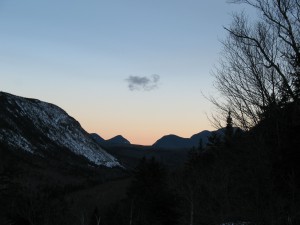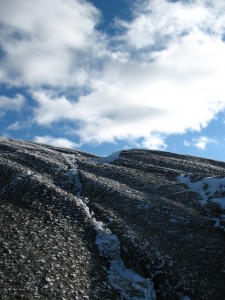a meditation on “Higher Laws”
Walden’s Higher Laws chapter rarely fails to provoke (and so, wake up?) a reader. Year after year, we arrive on its shores, and I watch as students shift from nodding acceptance of Thoreau’s portrait of the young boy as hunter and fisher to puzzlement (or outrage) when, late in chapter, he writes, “Nature is hard to be overcome but she must be overcome.” After weeks in the woods and an ongoing paean to “the wild,” this sentence seems a looped snare in the middle of the trail. Here we are, walking our leafy way through the woods, when, suddenly, we are airborne…and upside down. It seems a hard way to “invert your head.”
So there we were leafing through the chapter with these predictable results, and I had asked, “So, what might Thoreau mean when he says, ‘she must be overcome?'”
“So, perhaps,” said Daniel, “what Thoreau is talking about is the shift from hunter to poet. The poet still reaches out to take hold of the world, but he does so with words. The instinct is undimmed, but its expression has changed.” Mild confession: here, I have paraphrased, but I think I have caught the insight and the spirit of Daniel’s thinking.
Quiet ensued. Every so often in a classroom, there comes a moment of appreciative silence; the oiled click of so many locks sliding open is barely but clearly audible. In an instant, we know more. In the next instant there is nothing more to say, and we let the silence deepen for a bit before we turn to what’s next.
Now and for the rest of the years I read and reread this chapter, I’ll see the hunter become poet as he or she fashions the capture-cage of words that would both bring the wild close and leave it intact. Thank you, Daniel.


